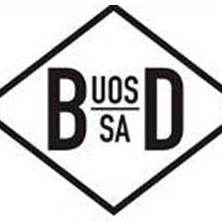click to dowload our latest edition
CLICK HERE TO SUBSCRIBE TO OUR NEWSLETTER


Published
4 years agoon
By
adminJORDAN MOSHE
Few people in history have been the target of conspiracy theories as frequently as the Jews. Whether accused of baking matzah with Christian blood or planning to take over the world, the Jewish people are supposedly behind almost every scheme conceivable. Believe it or not, this includes a devious plan involving kosher-certified products on the shelves of grocery stores, designed to ensnare shoppers innocently going about their weekly shopping.
Although theories vary, the premise of the so-called kosher tax is that Jews extort food companies and those who buy their products for the cost of certification. Supposedly, the funds are then passed on to causes that benefit rabbis and promote Zionism or Jewish institutions in general.
In the West, the belief in the existence of such a tax took root during the 20th century, when kashrut authorities began awarding kosher certification to industrial-food manufacturers on a large scale. With kosher-certified foods sometimes carrying a higher price than non-kosher alternatives, a conspiracy theory was conceived that the extra money must be going somewhere, and that destination was probably Jewish.
According to the Anti-Defamation League (ADL), attacks on the labelling of food with the symbols for kashrut have been a standard ploy of anti-Jewish bigots for decades. As a Ku Klux Klan (KKK) pamphlet reads, “Jews have discovered a way to coerce business to pay taxes directly to Jewish organisations and pass the cost on to the consumer.”
The pamphlet states further, “American families are paying tribute to Jews every time they sit down at the table to eat and in many instances, polish their shoes, silver, or wrap leftover Thanksgiving turkey.”
Similarly, La Voz de Aztlan, a tiny extremist group based out of Los Angeles, circulated an email in 2003 regarding the alleged “kosher nostra scam”. It claimed that major food companies throughout America actually paid “a Jewish tax amounting to hundreds of millions of dollars per year in order to receive protection. This hidden tax gets passed, of course, to all non-Jewish consumers of the products. The scam is to coerce the companies to pay up or suffer the consequences of a Jewish boycott.”
The group also alleged that the perpetrators of these elaborate extortion schemes were “Rabbinical councils that are set up, not just in the United States, but in other western countries as well.” They claimed that a rabbi would typically approach a company to warn the owners that unless their product was certified kosher, they would face a boycott by every Jew in America, writing, “Most, if not all of the food companies, succumb to the blackmail because of fear of the Jewish dominated media and a boycott that may eventually culminate in bankruptcy.”
The accusation is that these companies pass the cost on to their consumers, concealing the true meaning of the stamps on their products and the amounts of money being paid to the extorting rabbis.
The conspiracy has been debunked repeatedly for decades, with Jewish and non-Jewish investigators alike proving empirically that the allegation is utter nonsense and blatantly anti-Semitic. Old as the canard may be, Canadian political candidate Louise Mailloux decried a “tax” levied by Jewish and Muslim groups against Canadian consumers as “theft” in 2014.
In truth, while kosher-certified foods can be more expensive, the additional charge is minimal, and virtually all the profit goes to the manufacturer, with a portion paying the salaries of the kashrut organisation’s staff in some instances. According to the ADL, while a cost is involved in certification, “The cost to the consumer for this service is a miniscule fraction of the total production overhead; it is so negligible in practical terms as to be virtually non-existent.” Indeed, multiple reports mention that in 1975, the cost per item for kosher certification was reported by the New York Times to be 6.5 millionths of a cent ($0.000000065) for a frozen-food item.
Even in cases where the cost of kosher is more substantial, the average consumer isn’t burdened with extra expense. Such is the case where kosher slaughter (shchita) is concerned, with the technicalities of inspection, processing, storage, and quality of kosher meat resulting in prices higher than non-kosher alternatives. Only those who opt to buy the kosher option are affected, with those who buy normal meat paying nothing at all.
Moreover, many have rightly argued that if manufacturers didn’t find certification profitable, they wouldn’t engage in the process, and that the increased sales resulting from kosher certification actually lowers the overall cost per item. In addition, evidence suggests that it’s not only Jews who buy kosher-certified products, but that certain Christians and even Muslims prefer kosher items because they believe kosher means better quality.
If anyone can complain about an actual tax on kosher food, it’s the Jews. Historically speaking, a kosher tax did exist and was levied against Jews themselves. Several European states (among them the Habsburg empire, Germany, and Moldavia) imposed different variations of the kosher tax on the Jews, primarily on meat. This included the Russian Empire’s “Box Tax” which required Jewish citizens to pay for each animal slaughtered in accordance with kashrut rules and for each pound of meat sold.
Therefore, any argument that kashrut certification is a form of consumer extortion is nothing more than a thinly veiled invocation of anti-Semitism.
